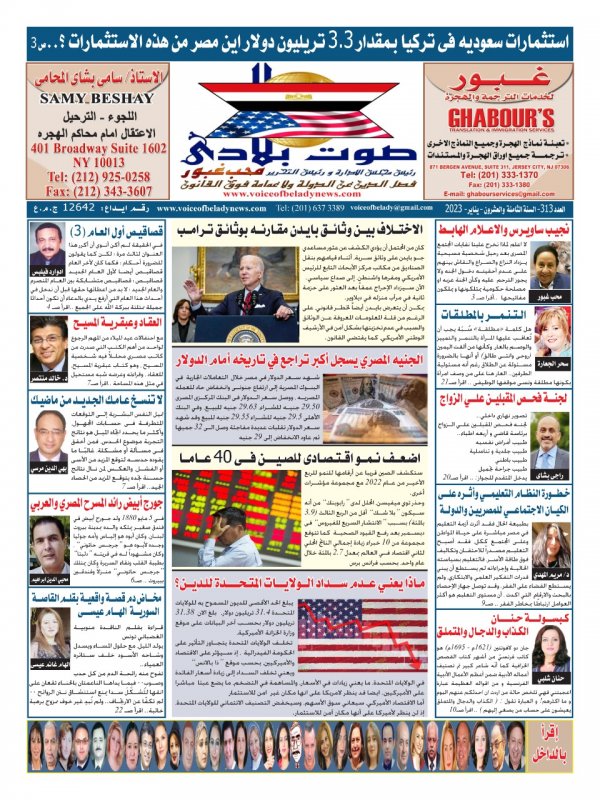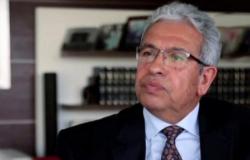Awny Seif
On the occasion of the International Day of Arabic Language, I heard the views of an elite of writers, critics and intellectuals as they spoke of the idea that the Arabic language was sacred by God by the descent of the " Holy Koran" in Arabic. This is true and the intellectual and ideological right gained for all Arabs and all Muslims. But what about other peoples, do they sacred their languages or consider them sacred ? The answer is "Yes". Here's some details about some different languages and people.
The concept of holiness in language is rooted in the belief that certain languages are imbued with divine qualities or are the medium through which sacred texts are transmitted. In this essay, we will explore the holiness of languages in different religious traditions and the significance of language in shaping religious and spiritual experiences.
The Hieroglyphic language of ancient Egypt holds a special significance as a holy language, believed to be a sacred and divine form of communication. Used primarily for religious texts and inscriptions, hieroglyphics were thought to be a way of connecting with the gods and conveying spiritual truths. The intricate symbols and pictographs were seen as a direct link to the divine realm, with each character holding powerful spiritual meanings. As such, the hieroglyphic language was considered sacred and was used exclusively for religious and ceremonial purposes, reinforcing its status as a holy language in ancient Egyptian culture.
In the context of Christianity, the Bible is often considered the ultimate sacred text, and the languages in which it was originally written, namely Hebrew, Greek, and Aramaic, are viewed as holy languages. Hebrew, in particular, is considered the language of creation and prayer in Judaism, and the language in which God revealed the Torah to Moses. Greek, on the other hand, is the language in which the New Testament was written, and is seen as the language that spread Christianity to the world. The holiness of these languages is tied to their role in conveying divine teachings and the word of God to believers.
In Islam, Arabic is considered the holy language, as it is the language in which the Quran was revealed to the Prophet Muhammad. The Quran is believed to be the literal word of God as transmitted to Muhammad in Arabic, and therefore the language is considered sacred by Muslims around the world. Arabic is used in Islamic rituals, prayers, and recitations of the Quran, and is seen as the language of divine revelation and guidance.
In Hinduism, Sanskrit is considered the sacred language of the gods and is used in religious rituals, prayers, and texts. The Vedas, the oldest and most revered texts in Hinduism, are written in Sanskrit and are believed to be a revelation from the gods to ancient sages. Sanskrit is viewed as a divine language that carries spiritual power and is used in mantras, chants, and rituals to invoke blessings and connect with the divine.
In Buddhism, Pali is considered the sacred language in which the Theravada canon, the Tripitaka, is written. The Tripitaka contains the teachings of the Buddha and is considered the authoritative text in Theravada Buddhism. Pali is seen as the language of enlightenment and spiritual awakening, and is used in chanting, meditation, and recitation of Buddhist scriptures.
The holiness of languages in different religious traditions highlights the importance of language in shaping religious beliefs, practices, and experiences. Language is not only a means of communication, but also a tool through which divine truths are transmitted and spiritual connections are established. The reverence and respect for sacred languages reflect the belief that language is a powerful and transformative force that can mediate the divine and bring individuals closer to the sacred.
The significance of language in shaping religious beliefs, practices, and experiences cannot be understated, as it plays a central role in conveying the word of God, transmitting sacred texts, and invoking divine blessings. The reverence for sacred languages underscores the belief in the sanctity of language and its ability to mediate the divine in human lives.




 رئيس التحرير يكتب : من التراب وإلى التراب يعود .. تحويل جثث الموتى إلى سماد عضوى
رئيس التحرير يكتب : من التراب وإلى التراب يعود .. تحويل جثث الموتى إلى سماد عضوى
 رئيس التحرير يكتب : لماذا تصر الحكومة على استمرار شريف أبو النجا رئيسا لمستشفى 57357 رغم الشواهد العديدة على فساده
رئيس التحرير يكتب : لماذا تصر الحكومة على استمرار شريف أبو النجا رئيسا لمستشفى 57357 رغم الشواهد العديدة على فساده اقرأ في العدد الجديد ( عدد يناير ٢٠٢٣ ) من جريدة صوت بلادي
اقرأ في العدد الجديد ( عدد يناير ٢٠٢٣ ) من جريدة صوت بلادي









